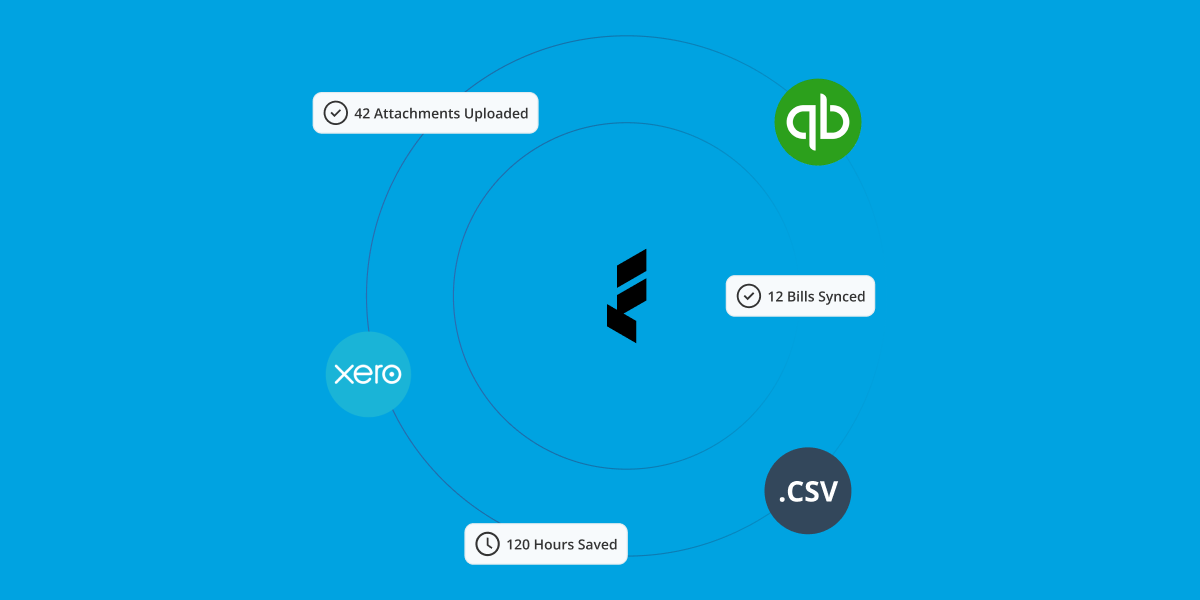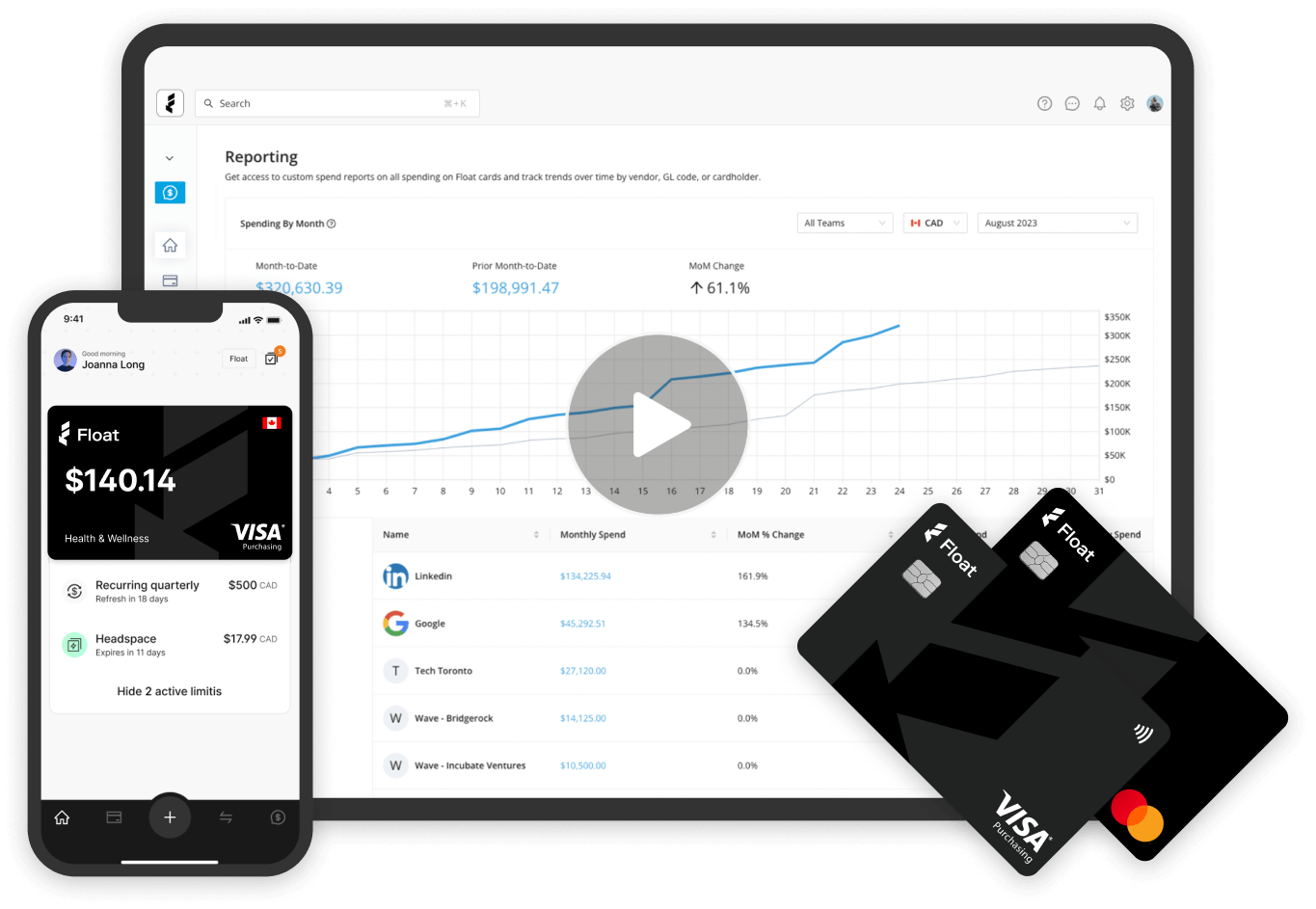Corporate Cards
Should Employees Use Personal Credit Cards for Work?
Explore the risks of personal card use for business and learn smart, practical steps to roll out corporate cards with confidence.
April 17, 2025

In small startups or lean finance teams, employees using personal credit cards for business expenses can feel like a necessary evil. It’s quick, familiar and avoids the complexity of setting up corporate cards—at least for a while.
But as your business grows, so do the risks of mixing personal finances with business. What starts as a simple workaround can quietly create financial blind spots, employee friction and policy headaches. Personal cards seem easier until receipts go missing, reimbursements lag and someone’s chasing down records for a $1,000 steak dinner.
So, which is right for your business?
Let’s walk through the pros and cons of both options, as well as smart steps you can take to make the shift without overhauling everything.
Why credit cards are used for business expenses
As your business evolves, so will your financial needs. With things moving at a faster pace, it’s natural for more transactions to move towards credit cards. In fact, monthly credit card spend has gone up 18% on average for small businesses in Canada over the past few years.
As an owner, using a personal credit card for company expenses might feel convenient, but it can blur the lines between business and personal finances fast. And any additional balance you end up carrying could hurt your chances of gaining the personal credit you need, like a mortgage or car loan.
On the other hand, the biggest reason employees use personal cards is simple: they don’t have access to company funds when needed. This shows up most often in time-sensitive situations like grabbing office supplies, taking clients out for lunch or covering travel expenses on the fly.
In many companies, only a few senior leaders have corporate cards. So when something comes up unexpectedly, employees do what they can: they put it on their own cards and submit for reimbursement later.
Should you let employees use personal credit cards or explore a corporate credit card program?
From an operations standpoint, letting employees use personal credit cards for business expenses might seem harmless. Until it snowballs into various levels of chaos.
Can it work at the beginning? Sure. Is there usually a tipping point where it’s no longer the best idea? Definitely.
Using personal credit cards for business in Canada
Letting employees use personal cards does offer short-term advantages. No setup or new systems are required, and employees can access funds immediately if they have credit room.
And employees certainly do like earning those sparkly personal reward points.
But those benefits don’t hold up under pressure at a growing business, and suddenly your “simple” system is eating your month-end close alive before you know it.
Here’s where personal cards become a liability:
- Equity and access: Not every employee can afford to front expenses. It can be presumptuous to assume all staff have personal credit available, especially for large expenses like flights or hotel bookings.
- Delayed visibility: Finance teams don’t see the spend until the expense report comes in, which often means late, incomplete or unclear financial data.
- Reimbursement friction: Employees can be left floating thousands of dollars for weeks while they wait for approvals and payroll cycles.
- Illusion of control: Many finance leaders believe reimbursements encourage frugality. In reality, once the spend has happened, there’s little recourse beyond a stern conversation. Most expenses still get reimbursed, and the money still goes out the door.
Providing corporate credit cards for business expenses
On the other hand, corporate credit cards (especially modern ones) give finance teams actual control and oversight through:
- Pre-set spend limits by person, team or category
- Real-time visibility into purchases
- Automated integrations with spend management tools
- Easier, faster reconciliation and month-end close
- No financial burden on the employee
- Company benefits tied to rewards related to spending (cash back, anyone?)
Of course, corporate cards aren’t a magic fix. Some finance leaders worry that giving everyone access to company money invites misuse.
However, that concern is fading with more modern corporate credit cards options. Today’s tools make it possible to issue credit cards for business expenses with as little as zero balance, only funding them as needed with strict and customizable rules.
Best business credit cards
Compare top options, fees and benefits for
Canadian companies.
What finance leaders should do about company expense management
You don’t have to go from zero to 100 overnight. There are smart and manageable steps finance teams can take to move away from personal card use and toward a more efficient, equitable system:
1. Start small with high-impact teams
Roll out corporate cards to a specific group like the sales team, execs who travel often or operations staff handling frequent purchases. Focus on the team with the most frequent or high-dollar spend to make the biggest immediate difference.
2. Use zero-balance cards as a safeguard
Give employees cards with no preloaded funds. When they need to make a purchase, approved funds can be issued instantly. This creates access without risk and keeps finance firmly in control.
3. Build clear policies before scaling
Don’t wait until you’ve distributed cards to create an expense policy. Define what’s allowed, who approves it and what the guardrails are. The more clarity you provide up front, the fewer issues you’ll have down the road.
4. Prioritize education and support
Corporate card programs are only as effective as the communication around them. Help employees understand when and how to use their cards and what to do if something changes. You’re not restricting spending; you’re empowering them with the right tools to do their jobs.
5. Use tools that give real-time oversight
Pair your cards with expense management software that shows transactions as they happen, not after the fact. This gives you tighter control, easier audits and way less chasing after receipts.
6. Revisit and adjust as you grow
Don’t treat your first rollout as the final answer. As your company evolves, so will your needs. Periodically review your cardholders, limits and policy to make sure your program is scaling with you.
Make expense management even easier
Streamline your business spending with automation tools built right into Float.
Float: Corporate cards with flexibility built right in
Using personal credit cards for business in Canada isn’t the only option for your team. Reimbursements might work in a pinch, but they don’t scale. Corporate credit cards can flip the script, especially when paired with the right tools and policies. They make company funds accessible without giving up control.
Ready to see how simple spend management can be?
Float makes it easy to issue cards with custom limits, track spend in real time and scale your program at your own pace.
Written by
All the resources

Corporate Cards
Corporate Card Misuse Prevention: 2026 Control Strategies for Canadian Businesses
Corporate cards can be a powerful tool—if you set the right guardrails from the start. Here's what you need to
Read More
Finance Team Efficiency
Best Accounts Payable Software for Canadian Businesses in 2026
Make accounts payable more efficient with AP automation. Compare the best accounts payable automation software built for Canadian businesses.
Read More
Finance Team Efficiency
Best Accounting Software for Canadian Businesses: 2026 Complete Guide
Discover the best accounting software solutions for Canadian businesses. Compare top solutions like Quickbooks, Xero, FreshBooks, Sage 50, and Wave.
Read More




